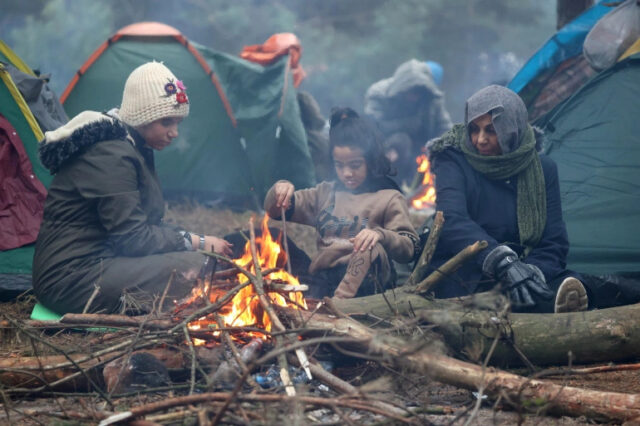The European Union (EU) and the United States (US) penalized the Belarusian government for cracking down on dissent after a disputed August 2020 election which handed the 67-year-old a sixth term and provoked mass anti-government protests. But the crisis started this year after Belarusian President Alexander Lukashenko reacted intensely to European Union (EU) sanctions. This reaction came after the bloc had punished Minsk over its forced diversion of a passenger jet in May and subsequent arrest of a dissident journalist, Roman Protasevich, who was on board. With the above events, Belarusian President Alexander Lukashenko declared that Belarus would prevent undocumented migrants and refugees from reaching the EU and stated the reason for the same that his government due to the sanctions do not have sufficient funds that are required to do so.
Now a months-long border crisis along the European Union’s frontiers with Belarus has become into a serious geopolitical dispute and has increased fears of a humanitarian disaster. Around 3,000 to 4,000 migrants and refugees, many of whom belong to the Middle East and Afghanistan, have camped out in what is known as a no-man’s-land between Belarus and Poland. This started to happen after people were being denied entry to the EU nation. Human rights groups and global bodies have raised concerns for their wellbeing, pointing to the reporting of deaths on both sides of the border as conditions of severe winters and limitation of drinking water and food increase. Those who are trying to leave Belarus have been denied entry to Poland, with a forbidding barbed wire fence and masses of security forces deployed by Warsaw barring their way. They are stuck in freezing temperatures, without access to vital supplies or medical care, as fears for their safety mount.
The EU has made a strong show of solidarity with Poland, Lithuania and Latvia. The EU officials are expected to discuss another round of sanctions against Belarus, and European Council President Charles Michel said for the first time that the bloc would consider the possibility of financing things such as barriers or fences on the border whereas, on the other hand, Belarusian opposition has urged the EU to take even tougher measures, including a trade embargo and a ban on the transit of cargo via Belarus. As per many reports, it has been stated that Russia is helping the President through both loans as well as political support. But these claims have been denied by the Russian authorities. With another round of discussion still pending, there are chances for the crisis to increase and be tougher on people.









